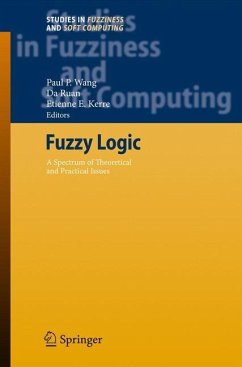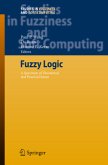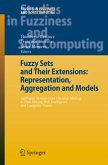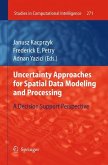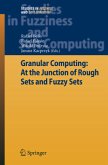How far can you take fuzzy logic, the brilliant conceptual framework made famous by George Klir? With this book, you can find out. The authors of this updated edition have extended Klir's work by taking fuzzy logic into even more areas of application. It serves a number of functions, from an introductory text on the concept of fuzzy logic to a treatment of cutting-edge research problems suitable for a fully paid-up member of the fuzzy logic community.
In order to properly characterize the content of this book, it is important to clarify ?rst the intended meaning of its title Fuzzy Logic. This clari?cation is needed since the term "fuzzy logic," as currently used in the literature, is viewed either in a narrow sense or in a broad sense. In the narrow sense, fuzzy logic is viewed as an area devoted to the formal development, in a u- ?ed way, of the various logical systems of many-valued logic. It is concerned withformalizingsyntactic aspects(basedonthenotionofproof)andsemantic aspects (based on the notion oftruth) of the variouslogical calculi. In order to be acceptable, each of these logical calculi must be sound (provability implies truth) and complete (truth implies provability). The most representativep- lication of fuzzy logic in this sense is, in my opinion, the classic book by Peter Hajek [1]. When the term "fuzzy logic" is viewed in the broad sense, it refers to an extensive agenda whose primary aim is to utilize the apparatus of fuzzy set theoryfordevelopingsoundconcepts,principles,andmethodsforrepresenting and dealing with knowledge expressed by statements in natural language. Although workin fuzzy logicin the broadsense is not directly concernedwith the issues that are investigated under fuzzy logic in the narrow sense, the importance of the latter is that it provides the former with solid theoretical foundations. After examining the content of this book, it is easy to conclude that its title,FuzzyLogic, referstofuzzylogicinthebroadsense. Thisisconsistent,by and large, with the usual meaning of the term "fuzzy logic" in the literature.
In order to properly characterize the content of this book, it is important to clarify ?rst the intended meaning of its title Fuzzy Logic. This clari?cation is needed since the term "fuzzy logic," as currently used in the literature, is viewed either in a narrow sense or in a broad sense. In the narrow sense, fuzzy logic is viewed as an area devoted to the formal development, in a u- ?ed way, of the various logical systems of many-valued logic. It is concerned withformalizingsyntactic aspects(basedonthenotionofproof)andsemantic aspects (based on the notion oftruth) of the variouslogical calculi. In order to be acceptable, each of these logical calculi must be sound (provability implies truth) and complete (truth implies provability). The most representativep- lication of fuzzy logic in this sense is, in my opinion, the classic book by Peter Hajek [1]. When the term "fuzzy logic" is viewed in the broad sense, it refers to an extensive agenda whose primary aim is to utilize the apparatus of fuzzy set theoryfordevelopingsoundconcepts,principles,andmethodsforrepresenting and dealing with knowledge expressed by statements in natural language. Although workin fuzzy logicin the broadsense is not directly concernedwith the issues that are investigated under fuzzy logic in the narrow sense, the importance of the latter is that it provides the former with solid theoretical foundations. After examining the content of this book, it is easy to conclude that its title,FuzzyLogic, referstofuzzylogicinthebroadsense. Thisisconsistent,by and large, with the usual meaning of the term "fuzzy logic" in the literature.
From the reviews:
"This book has four objectives: to give newcomers a clear idea ... to give people familiar with fuzzy logic an indication of where fuzzy logic can most effectively proceed, to give funding agencies a picture of where their investment would produce maximum returns, and to give scientific and mathematical philosophers a picture of the state-of-the-art in fuzzy logic research. ... This comprehensive, up-to-date book certainly deserves a place in the libraries of all institutions ... . Summing Up: Recommended. Upper-division undergraduates through professionals." (R. Bharath, CHOICE, Vol. 45 (7), 2008)
"This book has four objectives: to give newcomers a clear idea ... to give people familiar with fuzzy logic an indication of where fuzzy logic can most effectively proceed, to give funding agencies a picture of where their investment would produce maximum returns, and to give scientific and mathematical philosophers a picture of the state-of-the-art in fuzzy logic research. ... This comprehensive, up-to-date book certainly deserves a place in the libraries of all institutions ... . Summing Up: Recommended. Upper-division undergraduates through professionals." (R. Bharath, CHOICE, Vol. 45 (7), 2008)

